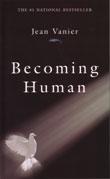What to Watch this Week: Survivor

If you are a Survivor fan, then you probably already know that the new season premieres tonight at 8 on CBS. If, on the other hand, Survivor is only something you have heard about vaguely or seen the odd time on TV, then perhaps you are feeling surprised as you read this, wondering at the fact that the show is still on.
Your surprise would be, in a sense, warranted. Survivor is about to embark on its 32nd season (that is, though the castaways have long been back from their island adventure, the results of said adventure will appear on television, starting tonight). What is it about Survivor that has allowed it to endure for over 15 years? Part of it certainly has to do with the numerous twists producers have thrown into the franchise over the seasons. In order for a concept to resist becoming tired and “unoriginal,” it needs to be supplanted with new ideas so that the thing as a whole feels new. Survivor has maintained this constant revitalization process with impressive success. For example, last season brought back twenty former players (voted on by viewers) for a “second chance,” something that had never been done before. Hidden immunity idols and cast divisions based on specific personality traits (this upcoming season will, for the second time, split players up based on whether they possess “brain,” “beauty,” or “brawn”) have breathed new life into what otherwise might become a familiar formula.









